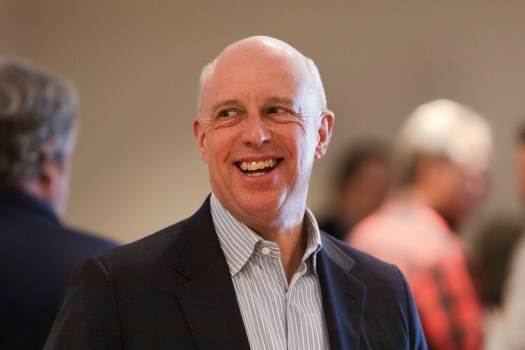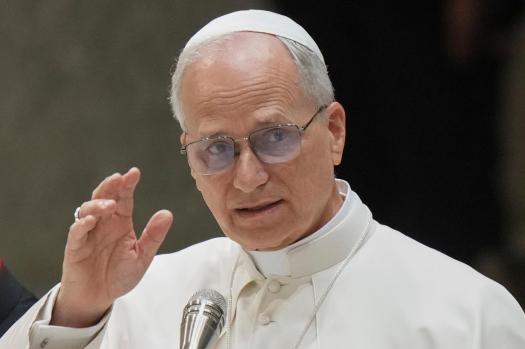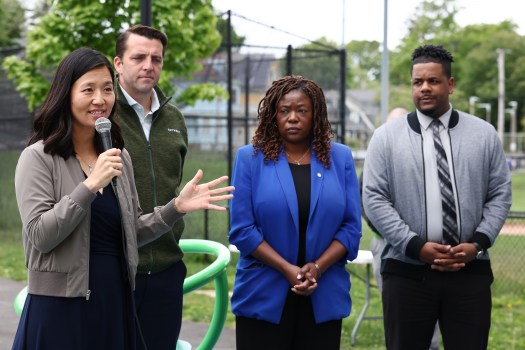Since commencing his campaign in April, Republican candidate for governor Mike Kennealy has given his campaign double the amount permitted by state law. This could lead to further legal action should Kennealy or his family ever try to recover the money he loaned his candidacy for elected office.
After state campaign finance authorities rejected Kennealy’s request in April to reevaluate the cap on the amount of money candidates can lend themselves each election cycle, Kennealy decided to lend his campaign $400,000 and plans to lend an additional $1.6 million ahead of the 2026 election.
The head attorney at the Office of Campaign and Political Finance responded to a petition from Kennealy’s campaign by stating that the agency will keep up its enforcement of the state law provision capping the amount of money a gubernatorial candidate may loan their campaign at $200,000 every election.
However, a representative for the Office of Campaign and Political Finance did not specify on Tuesday if the organization intended to file a lawsuit against Kennealy for having already given himself double the amount permitted by state law.
The spokeswoman told the Herald that OCPF does not comment on individual candidates. Regarding the law in general, I can say that OCPF upholds the written provisions of section seven of the Massachusetts campaign financing law.
According to state records, Kennealy, a Lexington resident who is 57 years old and once worked for former Governor Charlie Baker, gave his campaign $200,000 in April and another $200,000 in May. The loans are a component of his promise to use $2 million of his personal funds to launch his gubernatorial campaign.
Due to state law’s cap, wealthy contenders for political office rarely lend themselves that much money, while frequently contributing millions to their campaigns. However, a 1976 court ruling has led the Kennealy campaign to argue that the provision is unconstitutional.
According to Kennealy spokesperson Logan Trupiano, Kennealy remains committed to lending $2 million to his campaign. In the past, the campaign claimed that the loan was a component of a strategy to provide Mike’s family with security in the unlikely case of an unanticipated disaster.
In a statement to the Herald on Tuesday afternoon, Trupiano stated that Mike is the only candidate who is certain enough and willing to utilize his personal resources to defeat Maura Healey and save Massachusetts.
An attorney hired by Kennealy’s campaign claimed in a letter to regulators in late April that the Massachusetts loan limit rule was unconstitutional due to a 1976 decision by the U.S. Supreme Court.
However, Chris Ashby, a lawyer from Washington, D.C., stated that the Office of Campaign and Political Finance might never have had a chance to look into the issue.
Since OCPF will not enforce the loan limitation, Ashby wrote in the letter, “for the reasons listed below, we request that your office consider the constitutionality of the candidate loan limitation in light of Buckley v. Valeo and issue appropriate written guidance or other response.”
The 1976 ruling was made in the case of Francis Valeo, the ex-officio member of the Federal Election Commission and the then-secretary of the U.S. Senate, against former U.S. Senator James Buckley of New York.
According to the Federal Election Commission, Buckley and others contended that the Federal Election Campaign Act of 1971’s ban on the use of funds for political purposes went against the First Amendment’s guarantees of free speech because no political expression could be made without financial support.
According to Kennealy’s attorney, the decision ruled that Massachusetts’s state law restricting the amount a candidate can lend to themselves or their campaign committee violates the First Amendment of the US Constitution by limiting the candidate’s personal spending.
On the same day that Ashby requested that regulators reexamine the legislation, Office of Campaign and Political Finance General Counsel Sarah Harty responded via email, stating that the agency is still enforcing section seven of the Massachusetts finance campaign statute in its current form.
Various borrowing restrictions are outlined in that section of state legislation for candidates seeking public office.
Each election, candidates for governor or lieutenant governor are not allowed to borrow more than $200,000.
Each election cycle, the maximum loan amount for candidates running for state senator and state representative is $50,000, while the maximum loan amount for candidates running for secretary of state, treasurer, auditor, and attorney general is $150,000.
State campaign finance authorities said there are no loan restrictions for candidates seeking other posts.
For example, Josh Kraft, a Democrat seeking to replace Mayor Michelle Wu as mayor of Boston, lent himself $2 million last month.
A contemporary campaign that involves a strong and effective field organization requires more resources than I can gather in such a short period of time, Kraft said in a statement, even though my campaign recently crossed the $1 million donation milestone.












